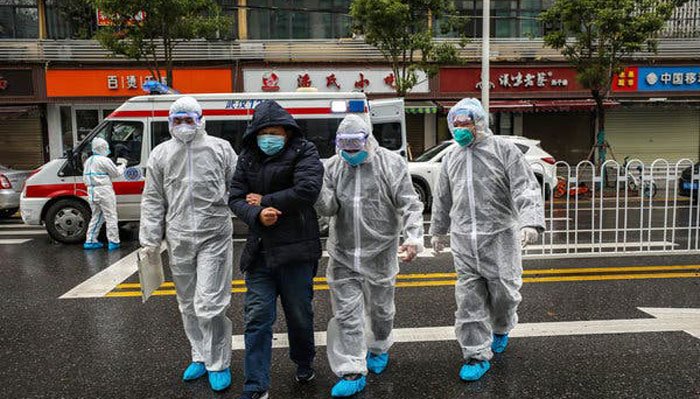Should the world follow China's strategy to tackle the Coronavirus
https://www.revenuehits.com/lps/pubref/?ref=@RH@yFrunQv_mzw-z-eHW6TrQFgCNN7_AvfT

Should the world follow China's strategy to tackle the Coronavirus
As the world grapples with the coronavirus pandemic, the head of the World Health Organisation (WHO) believes China’s battle with the coronavirus offers a beacon of hope.
China has reported only one new local infection over the past four days, a seemingly remarkable turnaround given the chaos that surrounded the initial outbreak in the city of Wuhan.
While some experts caution against accepting Beijing’s figures at face value, WHO chief Tedros Adhanom Ghebreyesus insisted China’s success "provides hope for the rest of the world".
But China is a particular case — a centrally-controlled, top-down, one-party authoritarian state that allows no dissent and can mobilize vast resources on a single issue.
Close down and contain

In January, China effectively shut down Wuhan and placed its 11 million residents in effective quarantine — a move it then replicated in the rest of Hubei province, putting 50 million people in mass isolation.
Across the rest of the country, residents were strongly encouraged to stay at home.
Hundreds of millions of Chinese live in closed residential complexes where neighborhood committees can police moved in and out — meaning compliance could be closely monitored.
"Containment works," Sharon Lewin, professor of medicine at the University of Melbourne, told AFP. "Two weeks after the closure of Wuhan, which is exactly the incubation period, the number (of infections) started to drop."
Extreme social distancing and home quarantines have been used to differing degrees by a rising number of European countries, with some US states the following suit.
But an Imperial College London study warned that while that strategy appeared to have succeeded to date in China, it carried "enormous social and economic costs" in the short and long term.
"The major challenge of suppression is that this type of intensive intervention package .... will need to be maintained until a vaccine becomes available (potentially 18 months or more)," it said.
If the intervention is relaxed, transmission rates "will quickly rebound", it added.
Mass mobilization
At least 42,000 doctors and medical personnel were sent to Hubei province to shore up the province’s health services which had, according to public health professor Zheng Zijie from Peking University, essentially "collapsed" under the strain of the fast-spreading epidemic.
Health experts from China’s Red Cross are currently helping overwhelmed hospitals in Italy, which has fast overtaken China as the worst-hit country in terms of coronavirus deaths.


Comments
Post a Comment